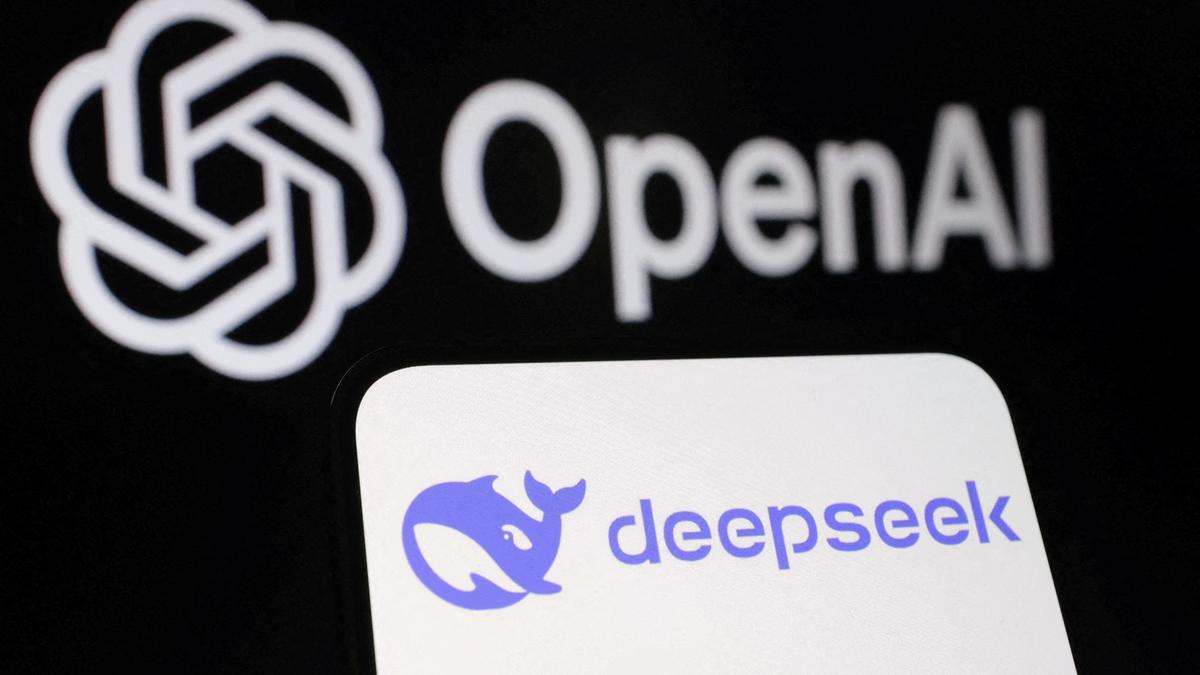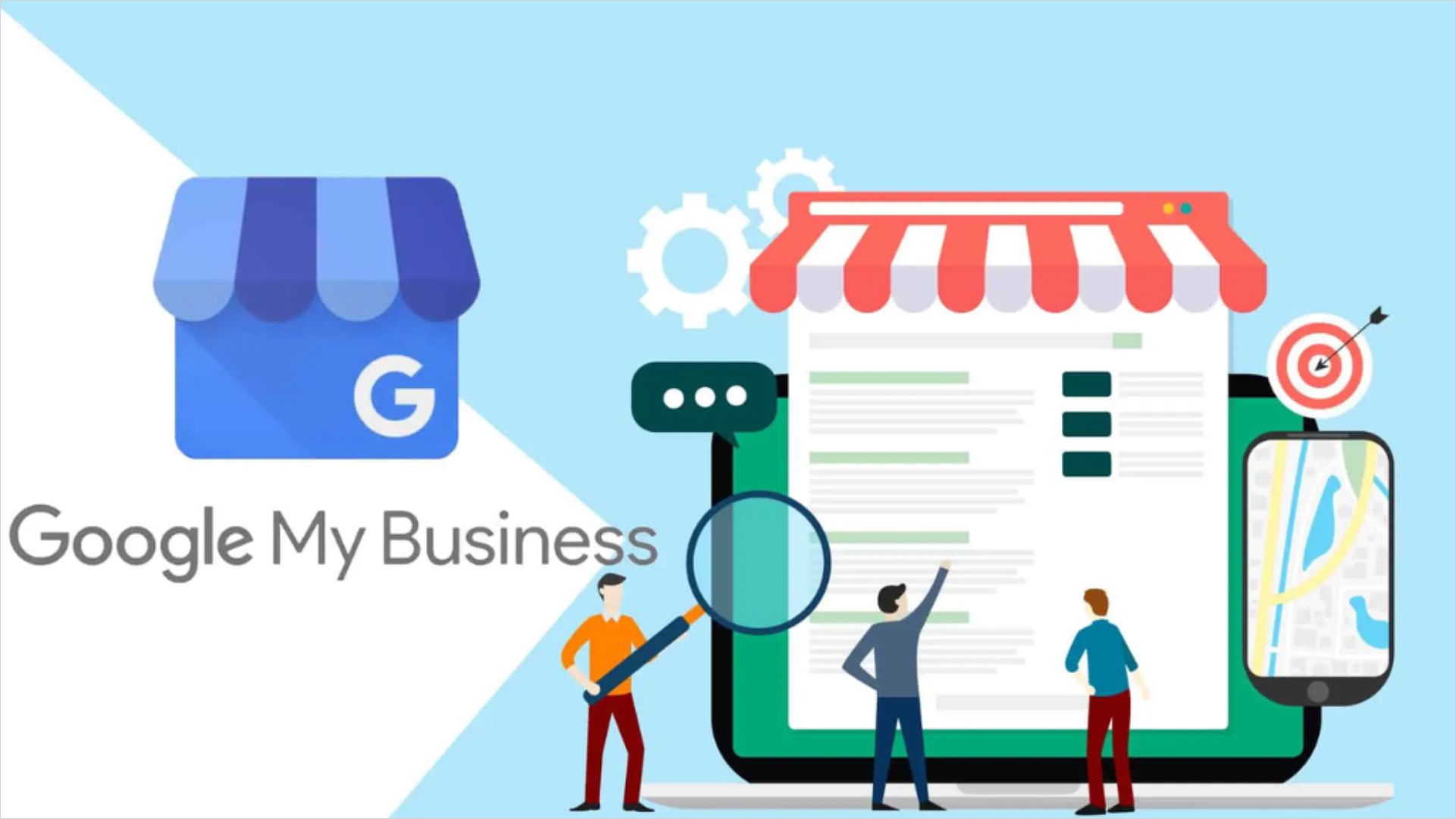
In today’s digital age, artificial intelligence (AI) is a game-changer for businesses seeking high-quality leads. OpenAI and DeepSeek offer powerful AI solutions that can help attract, engage, and convert potential customers. Whether you’re a startup or a large enterprise, integrating AI-driven tools can give you a competitive edge in lead generation.
This guide explores the best strategies, tools, and practices to generate leads using OpenAI and DeepSeek effectively
OpenAI is renowned for its advanced AI models like GPT-4, DALL·E, and Codex. These tools assist in content creation, chatbot automation, and customer engagement, making them invaluable for lead generation.
DeepSeek specializes in AI-driven analytics, personalized recommendations, and automation platforms tailored to specific industries. Its solutions help businesses streamline lead generation and customer interactions.
AI-driven tools from OpenAI and DeepSeek enhance lead generation by:
Automating repetitive tasks: Freeing up resources for strategic efforts.
Enhancing personalization: Delivering customized content and recommendations.
Improving efficiency: Analyzing vast data to identify high-quality leads.
Boosting creativity: Generating engaging content and visuals.
Blog Posts: Use GPT-4 to generate high-value content addressing customer pain points.
Email Campaigns: Create personalized emails with compelling CTAs.
Social Media Posts: Develop engaging captions and posts for better audience reach.
Use GPT-4-powered chatbots to answer FAQs, collect contact details, and schedule appointments.
Deploy chatbots on landing pages to engage and convert visitors.
Optimize ad performance with GPT-4-generated headlines and descriptions.
Create persuasive landing pages with AI-driven CTAs and offers.
Segment audience based on behavior and predict high-conversion leads.
Leverage AI insights to enhance marketing and sales strategies.
Track website user behavior and identify high-intent visitors.
Generate insights into customer preferences and engagement patterns.
Implement AI-driven product/service suggestions to boost conversions.
Enhance customer experience with tailored recommendations.
Automate follow-up emails and engagement sequences.
Score leads based on their interactions and prioritize follow-ups.
Provide instant responses to customer queries.
Improve engagement and conversion rates with AI-driven interactions.
Use OpenAI for content generation and DeepSeek for tracking interactions.
Align AI insights with marketing funnels for better conversions.
Combine AI-generated social media content with DeepSeek’s analytics.
Personalize messaging across email, social, and website channels.
Leverage OpenAI’s analysis and DeepSeek’s automation for real-time campaign adjustments.
Improve ROI with AI-enhanced targeting and messaging.
Define Your Target Audience: Ensure AI tools focus on the right customer base.
Personalization is Key: Deliver tailored content to enhance engagement.
Test and Optimize: Continuously analyze AI-driven campaign performance.
Ensure Data Privacy: Follow compliance regulations when handling customer data.
Track Key Metrics: Monitor conversion rates, email performance, and customer interactions.
An online store uses OpenAI’s GPT-4 for AI-generated product descriptions and DeepSeek’s recommendation engine to personalize shopping experiences, resulting in increased conversions.
A SaaS provider uses GPT-4 to generate email campaigns and DeepSeek’s analytics to identify high-potential leads, boosting customer acquisition.
A medical business utilizes OpenAI for informative blog content and DeepSeek’s AI chatbot to handle patient inquiries, enhancing lead generation efforts.
OpenAI and DeepSeek offer transformative AI solutions for businesses looking to optimize lead generation. By leveraging AI-powered content creation, chatbot automation, analytics, and personalized recommendations, companies can streamline their sales funnel and achieve sustainable growth.
Start integrating AI tools today to supercharge your lead generation strategy and stay ahead in the competitive digital landscape.
Final Thoughts: AI-driven lead generation is the future of business growth. By harnessing OpenAI and DeepSeek, companies can unlock new opportunities and drive higher conversions effortlessly. Explore these tools today and take your marketing efforts to the next level!

The manufacturing and engineering sectors in India have traditionally been seen as industries that rely on physical processes, technical expertise, and long-standing client relationships. However, with the advent of the digital age, businesses in these sectors are now recognizing the importance of digital marketing to stay competitive, expand their reach, and streamline their processes.
As digital transformation reshapes industries, manufacturing and engineering companies in India are increasingly seeking the expertise of specialized digital marketing agencies to navigate the online landscape. These agencies play a crucial role in helping companies connect with customers, improve brand visibility, and generate qualified leads. In this blog, we’ll explore how digital marketing is transforming the manufacturing and engineering sectors and why partnering with a digital marketing agency is essential for success.
India’s manufacturing and engineering sectors have witnessed rapid growth in recent years, driven by government initiatives like Make in India and advancements in technology. Despite the traditional reliance on offline marketing methods such as trade shows, industrial events, and word-of-mouth referrals, businesses in these sectors are now leveraging digital marketing to enhance their visibility and generate new leads.
In a sector where sales cycles can be long and customer relationships are built on trust, digital marketing enables companies to showcase their expertise, products, and services to a wider audience. From B2B lead generation to brand awareness campaigns, digital marketing offers a range of strategies that manufacturing and engineering companies can use to achieve their business goals.
The manufacturing and engineering industries have unique needs when it comes to digital marketing. The complex nature of products, long sales cycles, and technical expertise required to understand and communicate offerings make it essential for businesses in these sectors to adopt a tailored approach to marketing. Here’s why digital marketing is crucial:
Several digital marketing agencies in India specialize in working with manufacturing and engineering companies. These agencies offer a range of services tailored to the specific needs of businesses in this sector. Below are some of the key digital marketing services they provide:
SEO is crucial for manufacturing companies that want to improve their visibility on search engines like Google. Specialized digital marketing agencies can help businesses optimize their websites for relevant keywords and industry-specific terms, ensuring they rank higher on search engine results pages (SERPs).
In the manufacturing and engineering sectors, customers need detailed information before making a purchase decision. Content marketing helps businesses showcase their expertise by creating blogs, whitepapers, case studies, product guides, and video tutorials.
A well-crafted content strategy can build credibility and trust with potential customers, position the business as an industry leader, and improve search engine rankings.
Social media platforms like LinkedIn, Twitter, and YouTube are increasingly being used by B2B manufacturing and engineering companies to connect with potential clients, share industry insights, and build brand awareness.
Digital marketing agencies develop social media strategies tailored to the B2B space, focusing on building a professional presence, generating engagement, and driving traffic to the company’s website.
PPC campaigns on platforms like Google Ads or LinkedIn Ads enable companies to target specific audiences and drive qualified leads to their websites. Manufacturing digital marketing agencies can help businesses design and manage these campaigns, optimizing ad spend to achieve maximum ROI.
For businesses in the manufacturing sector, email marketing remains one of the most effective ways to nurture leads and build relationships with potential clients. Agencies design and execute email campaigns that provide valuable information, promote products, and keep clients engaged throughout the sales cycle.
A well-designed, user-friendly website is essential for any manufacturing or engineering company. Digital marketing agencies ensure that your website is optimized for speed, usability, and conversion. They also integrate tools for lead generation, such as contact forms, product catalogs, and RFQ (Request for Quote) options.
Video content is an excellent way for manufacturing companies to demonstrate the functionality and value of their products. Agencies can create product demos, factory tours, or process explanations that help potential customers understand your offerings.
Several digital marketing agencies in India specialize in providing services to the manufacturing and engineering sectors. Here are some of the top agencies that have proven expertise in this field:
The manufacturing and engineering sectors in India are increasingly turning to digital marketing to expand their reach, generate qualified leads, and improve their market presence. By partnering with specialized digital marketing agencies, businesses in these industries can navigate the digital landscape more effectively, build stronger brands, and compete on a global scale.
From SEO and content marketing to social media and PPC, digital marketing agencies provide the expertise needed to thrive in the digital era. For businesses in manufacturing and engineering, adopting a comprehensive digital marketing strategy is no longer optional—it’s essential for long-term success.
Whether you're looking to showcase your expertise, build brand recognition, or generate leads, digital marketing can drive your business forward in an increasingly competitive industry.

In today’s digital-first world, businesses need both strong branding and effective marketing to succeed. Here’s why:
A well-established brand fosters trust and loyalty, making it easier for customers to choose your product or service. Consumers are more likely to engage with a brand they trust. Once trust is established, marketing efforts become more effective, as consumers already have a positive association with your business.
In essence, branding sets the foundation for your marketing to be successful. Without a strong brand, marketing efforts may fall flat, as customers won’t connect with the message or company behind it.
Once you’ve attracted customers through marketing, branding is what keeps them coming back. Marketing campaigns may draw customers in for the first time, but your brand identity, values, and personality are what build long-term loyalty.
For example, a customer might be initially attracted by a targeted Facebook ad for a discount on products, but it’s the company’s consistent branding and customer service that will turn them into a loyal customer.
In the crowded online marketplace, where businesses are competing for the same customers, branding helps you stand out. A unique brand identity makes your business memorable and helps differentiate you from competitors. Once you have a strong brand identity, marketing amplifies your message by promoting your business across multiple digital channels, from social media to search engines.
For example, a company like Tesla has a strong brand identity associated with innovation and sustainability. Their marketing efforts, which include digital advertising, email marketing, and influencer collaborations, amplify their brand and reach new audiences.
To thrive in the digital era, businesses need to combine branding and marketing effectively. Here are some steps to help you achieve that balance:
Branding and marketing are two sides of the same coin, each playing a crucial role in a business’s success in the digital era. While branding establishes who you are and creates an emotional connection with your audience, marketing is the strategic tool that amplifies that identity and drives measurable results.
To succeed in today’s competitive digital landscape, businesses must integrate both branding and marketing efforts to create a consistent, recognizable, and adaptable presence that resonates with consumers and leads to long-term growth.

In the competitive world of business, streamlining your operations can significantly impact your ability to generate leads, increase sales, and enhance your brand’s visibility. Enter BrandPerl, a comprehensive platform designed to help businesses optimize their processes and achieve better results. In this blog post, we’ll explore how BrandPerl can streamline your business operations for improved lead generation, sales, and branding.
BrandPerl is a powerful business optimization tool that focuses on enhancing the effectiveness of your marketing strategies. By integrating various features and services, BrandPerl helps businesses create a cohesive marketing plan that aligns with their goals. Whether you’re a small startup or an established enterprise, BrandPerl offers tailored solutions to meet your specific needs.
Now that we’ve established what BrandPerl is and its key features, let’s dive into how you can streamline your business operations using this powerful platform.
One of the most effective ways to streamline your business is by automating lead generation processes. BrandPerl offers automated tools for email marketing, social media management, and content distribution. By setting up automated workflows, you can continuously engage with potential customers without overwhelming your team.
Action Steps:
A streamlined sales funnel is crucial for converting leads into customers. BrandPerl allows you to track the progress of leads through your sales funnel, helping you identify where prospects drop off. By analyzing this data, you can make necessary adjustments to improve the buying experience.
Action Steps:
A strong brand identity is essential for standing out in a crowded marketplace. BrandPerl provides tools to help you create and maintain a cohesive brand image across all channels. From logo design to brand messaging, you can ensure that your brand resonates with your target audience.
Action Steps:
Data-driven decisions are key to effective marketing. BrandPerl’s analytics and reporting features allow you to track the performance of your marketing campaigns. By gaining insights into customer behavior and campaign effectiveness, you can refine your strategies for better results.
Action Steps:
Using BrandPerl to streamline your business operations offers numerous benefits:
In a world where competition is fierce, streamlining your business operations is essential for success. BrandPerl offers a comprehensive solution for optimizing lead generation, sales processes, and branding efforts. By leveraging the tools and features provided by BrandPerl, you can enhance your marketing strategies and drive growth.

In today's digital age, social media marketing (SMM) has become a crucial aspect of brand promotion and customer engagement. With the rapid growth of social media platforms, businesses and marketers are constantly seeking ways to enhance their online presence. This is where Social Media Marketing (SMM) panels come into play. In this blog, we will explore what an SMM panel is, how it works, its benefits, and the various services it offers.
An SMM panel is an online platform that provides social media marketing services. These panels allow users—typically marketers, businesses, or social media influencers—to purchase social media engagement services such as likes, followers, shares, comments, and views. Essentially, SMM panels act as a marketplace where users can access a wide range of services designed to enhance their social media presence and reach.
SMM panels are particularly popular among those looking to increase their visibility on platforms like Instagram, Facebook, Twitter, TikTok, and YouTube. By leveraging these services, users can improve their social media metrics, attract more followers, and enhance their overall online reputation.
The operation of an SMM panel is relatively straightforward. Here’s a step-by-step breakdown of how it typically works:
To get started, users must create an account on the SMM panel of their choice. Registration is usually quick and requires basic information such as an email address and password.
Once registered, users can browse through the various services offered by the panel. These services may include:
1. Followers: Gain followers on platforms like Instagram, Twitter, or TikTok.
2. Likes and Comments: Purchase likes or comments on posts to increase engagement.
3. Views: Boost the view count on videos or live streams.
4. Shares: Increase the number of shares on specific posts or content.
After selecting the desired services, users can place orders by specifying the quantity and providing necessary links (such as the URL of the social media post). Users typically need to add funds to their account balance to complete the purchase.
Once the order is placed, the SMM panel starts processing the request. Delivery times can vary depending on the service and panel. Users can monitor the progress of their orders through the panel’s dashboard, which often provides analytics and insights into the engagement received.
Using an SMM panel can offer several advantages, particularly for businesses and marketers looking to enhance their social media presence:
Managing social media accounts can be time-consuming. SMM panels allow users to quickly and easily purchase engagement services, saving time and effort that can be redirected toward creating quality content and engaging with followers.
In the competitive landscape of social media, visibility is crucial. By purchasing likes, followers, and comments, businesses can improve their visibility and appear more credible to potential customers. Increased engagement can lead to higher organic reach and attract more genuine followers.
SMM panels typically offer services at competitive prices, making them a cost-effective solution for businesses of all sizes. Rather than spending substantial amounts on traditional advertising, businesses can achieve measurable results through targeted social media engagement.
SMM panels provide access to a wide range of services tailored to different social media platforms. This allows users to customize their marketing strategies based on their specific needs and goals.
Many SMM panels offer analytics tools that help users track the performance of their purchased services. These insights can inform future marketing strategies and help users understand what types of content resonate most with their audience.
While SMM panels can be beneficial, there are also potential drawbacks to consider:
One significant concern with SMM panels is the quality of the engagement. In many cases, the followers, likes, or comments purchased through these panels may come from bots or inactive accounts. This can lead to low engagement rates and may not contribute to genuine brand loyalty.
Many social media platforms have strict policies regarding artificial engagement and purchasing followers. Using SMM panels may put accounts at risk of suspension or banning, especially if the practices are deemed inauthentic.
While SMM panels can provide quick results, these gains are often short-lived. Building a sustainable and engaged audience typically requires consistent effort in content creation, engagement, and community building.
If you decide to use an SMM panel, consider the following tips to choose the right one:
Research the panel’s reputation by reading user reviews and testimonials. Look for panels that have a track record of delivering quality services and reliable customer support.
Choose a panel that offers a wide range of services to cater to your specific needs. This flexibility allows you to adjust your marketing strategies as necessary.
Check for clear pricing information and ensure that there are no hidden fees. Compare prices across different panels to find a service that fits your budget.
Opt for a panel that offers responsive customer support. This can be crucial if you encounter any issues or have questions about your orders.
Consider the estimated delivery times for various services. A panel that delivers services promptly can help you achieve your marketing goals more effectively.
An SMM panel can be a valuable tool for businesses and marketers looking to enhance their social media presence. By providing a range of engagement services, these panels can help improve visibility, save time, and offer cost-effective marketing solutions. However, it's essential to weigh the benefits against potential drawbacks and choose a reputable panel that aligns with your goals.
Ultimately, while SMM panels can boost your online presence, they should complement a well-rounded social media strategy that includes organic content creation, genuine engagement, and community building. By balancing the use of SMM panels with authentic marketing efforts, you can achieve sustainable growth and foster lasting relationships with your audience.

In today’s digital landscape, having a strong online presence is crucial for businesses of all sizes. One of the most effective ways to enhance your online visibility is by utilizing Google My Business (GMB). This free tool allows businesses to manage their online presence across Google, including Search and Maps, making it easier for potential customers to find and connect with you. In this comprehensive guide, we will walk you through the steps to set up and optimize your Google My Business listing for maximum visibility and engagement.
Google My Business is a free tool provided by Google that enables business owners to manage their online presence. With GMB, you can create a business profile that appears when users search for your business or related services. This profile includes essential information such as your business name, address, phone number, website, operating hours, photos, and reviews.
By optimizing your GMB listing, you can improve your search engine ranking, attract more customers, and enhance your credibility.
If you don’t already have a Google account, you’ll need to create one. Visit the Google Account creation page and follow the prompts to set up your account. If you already have an account, simply sign in.
Once you have a Google account, go to the Google My Business website. Click on the “Manage Now” button to begin the setup process.
Enter your business name as it appears in the real world. If you don’t see your business listed in the suggestions, select “Add your business to Google.” Be sure to use your official business name, as it helps with brand recognition and searchability.
Selecting the right category is crucial for helping potential customers find you. Google provides a list of categories to choose from. Select the primary category that best describes your business. You can also add additional categories to further define your offerings.
If you have a physical location where customers can visit, enter your business address. If you operate a service-area business that doesn’t have a storefront, you can list the areas you serve instead. Google may ask you to verify your address through a postcard sent to your location.
Provide your business phone number and website URL. Ensure that these details are accurate, as they will be displayed on your GMB listing and used by customers to contact you.
To ensure that you are the rightful owner of the business, Google will require verification. The most common method is receiving a postcard with a verification code at your business address. Follow the instructions provided in the postcard to complete the verification process.
Once your GMB account is set up and verified, it’s time to optimize your listing to attract more customers.
Completeness is key when it comes to GMB optimization. Google favors listings that have complete information. Fill in all the relevant fields, including:
Images play a crucial role in attracting customers. Add high-quality photos of your business, products, and services. Research shows that businesses with photos receive 42% more requests for directions and 35% more click-throughs to their websites. Include a variety of images, such as:
Customer reviews are an essential factor in building trust and credibility. Encourage satisfied customers to leave reviews on your GMB listing. Respond to all reviews, whether positive or negative, to show that you value customer feedback. This engagement not only builds relationships but also boosts your listing’s ranking.
Google My Business allows you to create posts that appear in your listing. These posts can highlight special promotions, new products, events, or updates about your business. Use this feature to keep your audience informed and engaged. Posts should be:
The Questions and Answers (Q&A) feature allows potential customers to ask questions directly on your GMB listing. Monitor this section regularly and provide prompt, informative responses. You can also preemptively add frequently asked questions and their answers to help customers find the information they need quickly.
Incorporate relevant keywords into your business description, services, and posts. Think about the terms your potential customers are likely to use when searching for businesses like yours. However, avoid keyword stuffing; focus on providing valuable information while naturally integrating keywords.
Google My Business provides valuable insights into how customers interact with your listing. Regularly review this data to understand how people find your business, where they come from, and what actions they take. Use these insights to make informed decisions about your marketing strategies and GMB optimization efforts.
Optimizing your GMB listing is a crucial aspect of local search engine optimization (SEO). Here are some additional tips to enhance your local SEO efforts through GMB:
Consistency is key when it comes to your business's Name, Address, and Phone number (NAP). Ensure that your NAP information is consistent across all online platforms, including your website, social media, and directories. This consistency helps Google verify your business's legitimacy and improves your chances of ranking higher in local search results.
In addition to your primary category, consider adding relevant secondary categories. This can help your business show up in more specific searches related to your services. Research competitors in your industry to see which categories they are using for additional insights.
Your GMB listing should complement your website. Ensure that your website is optimized for local SEO, includes your NAP information, and provides valuable content relevant to your business. A well-optimized website enhances the effectiveness of your GMB listing and improves your overall search ranking.
Engage with your customers on multiple platforms. Share your GMB listing on social media, in email newsletters, and on your website to encourage more interactions and reviews. The more engagement your listing receives, the better it will perform in search results.
Setting up and optimizing your Google My Business listing is a crucial step in establishing a strong online presence. By following the steps outlined in this guide, you can create a compelling GMB profile that attracts customers and enhances your local search visibility.
Remember, consistency, engagement, and optimization are key to making the most of your Google My Business account. As you implement these strategies, you’ll be well on your way to driving more traffic to your business and ultimately increasing sales. Don’t underestimate the power of GMB; with the right approach, it can be a game-changer for your business in today’s digital landscape.